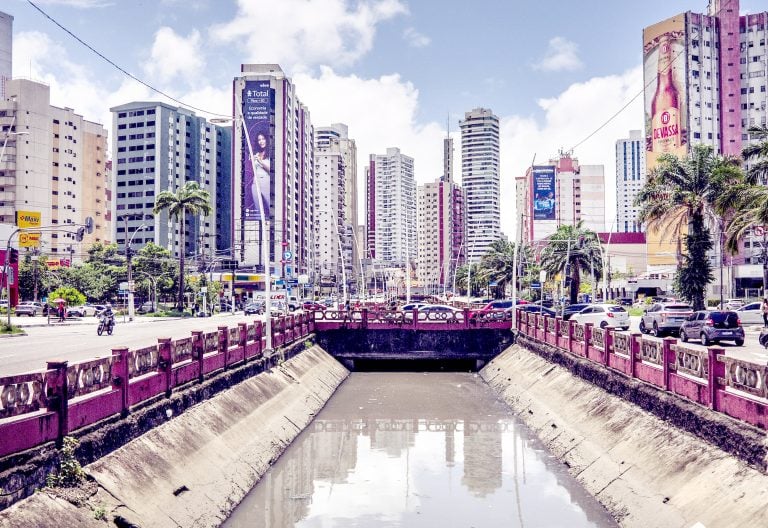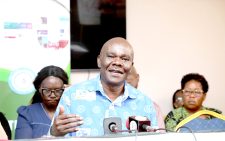Africa pins hopes on climate action at Brazil’s COP30 talks

Africa is hoping that climate action will gather momentum at the United Nations Convention on Climate Change (COP30) in Belém, Brazil and improve on the gains made at the last climate summit (COP29) in Baku, Azerbaijan.
Countries from the continent expect COP30 to provide an impetus for climate action – efforts to combat climate change, encompassing both reducing greenhouse gas emissions (mitigation) and preparing for and adapting to its impacts (adaptation).
Climate action, which requires climate finance to achieve its objectives, is a global effort involving governments, businesses, civil society and individuals to achieve a sustainable, low-carbon future.
Climate mitigation, which focuses on reducing greenhouse gas emissions, the primary cause of climate change, involves transitioning to renewable energy, improving energy efficiency, reducing deforestation, and developing carbon capture technologies.
Climate adaptation involves preparing for and adapting to the impacts of climate change already occurring or expected in the future by building infrastructure resilience, improving water management, ensuring food security and protecting ecosystems.
Climate finance encompasses financial resources, both public and private, used to support actions addressing climate change, including mitigation and adaptation efforts. COP29 was acrimonious as developed countries in Baku had avoided discussing finance, international cooperation and adaptation to climate impacts in the context of a just transition from fossil fuels.
Raw deal
Kenya’s Fatuma Hussein, who is Africa’s lead negotiator on a just transition, said this was the biggest problem. However, African countries said no deal on just transition at COP29 was better than a bad deal, Hussein said she preferred the option of having no outcome than putting the process at risk.
Negotiations on COP29’s main agenda – climate finance – were fractious too, as oil-rich Saudi Arabia did its utmost throughout in Baku to obstruct mentions of the globally agreed transition away from fossil fuels, and human rights, across all texts
In the end, Saudi Arabia’s efforts to upend the COP28 UAE consensus on energy transition meant that negotiations to move it forward had to be punted to the mid-year talks in Bonn next June. Because of the prevailing acrimony, it is most likely the tough negotiations will continue at COP30 in Brazil.
Discussions in Baku were acrimonious as disgruntled developing nations complained over the US$300 billion a year in climate finance deal struck instead of the US$1.3 trillion dollars they wanted to cope with the heavy burden of global warming caused by big emitters from wealthy nations.
However, the deal was a Pyrrhic victory for the Global South, as they climbed down to the new post-2025 climate finance goal following the fiery talks, with hopes of progress at the next meeting, COP30 in Belem, Brazil.
The fallout in Baku meant that all three crucial UN meetings on the three main issues confronting humanity and the planet – climate change, biodiversity loss and pollution – have been rocked by controversy and deadlock.
Africa’s position is pinned on Article 2 of the Paris Agreement, which aims to strengthen the global response to the threat of climate change in the context of sustainable development and efforts to eradicate poverty.
This includes holding the increase in the global average temperature to well below 2 degrees Celsius above pre-industrial levels and pursuing efforts to limit the temperature increase to 1.5 degrees Celsius above pre-industrial levels, recognising that this would significantly reduce the risks and impacts of climate change.
The Paris Pact also binds nations to increasing the ability to adapt to the adverse impacts of climate change and foster climate resilience, and low greenhouse emissions development, in a manner that does not threaten food production.
Global about-turn
Telling developing nations, including those in Africa, therefore, that they must work towards just transition on their own would be “missing the point” and not delivering on the goals of the 2015 Paris Agreement, Hussein asserts, referring to the impasse on fossil fuels, greenhouse gas emissions and their contribution to global warming.
Africa is weary of a global U-turn on the Paris pact, especially in the wake of climate-sceptic US President Donald Trump’s decision to withdraw from the agreement among other rash moves against climate action.
That’s why developing states and labour activists are looking forward to this year’s COP30, for the realisation of a just transition from fossil fuels. Disappointed at the setback during COP29 in Baku, trade unions and campaigners are nevertheless also seeking a fair deal for workers whose jobs will be affected by the transition away from planet-heating fossil fuels.
From coal mines and oil refineries to car factories and construction, the global shift to cleaner sources of energy will alter the nature of employment, leading to job losses in some sectors and creation in others. The transition will also create opportunities and risks in clean technology supply chains, and new threats and benefits for the communities where changes are happening.
COP24 in Sharm El Sheikh, Egypt was meant to be the ‘African COP’, and in a bid to “share the pain and gain” more equally, governments at the 2022 climate summit launched a “Just Transition Work Programme” (JTWP). But so far JTWP has delivered little – and talks on how the programme should proceed in practice ended with disagreement at COP29.
The Azerbaijani presidency running the talks instead focused on landing a new deal on climate finance for developing countries. Governments ended up delaying further discussions until the mid-year climate talks in Bonn, Germany and COP30 in Brazil.
International Trade Union Confederation (ITU) global policy coordinator Bert De Wel, tagged the Baku summit “a wasted COP” in terms of implementing the JTWP. He said the just transition was not given the attention it deserves, saying the interests of workers are often kicked out or “minimalized” at UN talks.
“When there is reference to rights, they tend to leave out labour rights. We just want to be mentioned too,” he argued.
COP30 President-designate André Aranha Corrêa Do Lago’s open letter last week offers optimism for Africa at the climate summit in Brazil, as he has urged member states to move away from the contentious past into a new era of climate action.
Outlining his vision for Brazil’s climate summit in November, Do Lago called for collective work on implementation with a new approach for challenging times.
Politicised talks
“Words and texts agreed by countries must bring about economic and social transformation in the new era of climate action,” said Do Lago imploring global diplomacy to shift focus from highly politicised negotiations to advancing real collective action on the ground so that they remain credible.
De Lago said a more pragmatic approach could help circumvent some of the longstanding divisions in climate talks, noting that there are few negotiations that are as politicised as climate change negotiations.
“You can see very clearly that there are limits to what the United Nations Framework Convention on Climate Change and the Pars Agreement aim of limiting global warming to below 1.5 degrees Celsius can do in implementation,” he observed.















